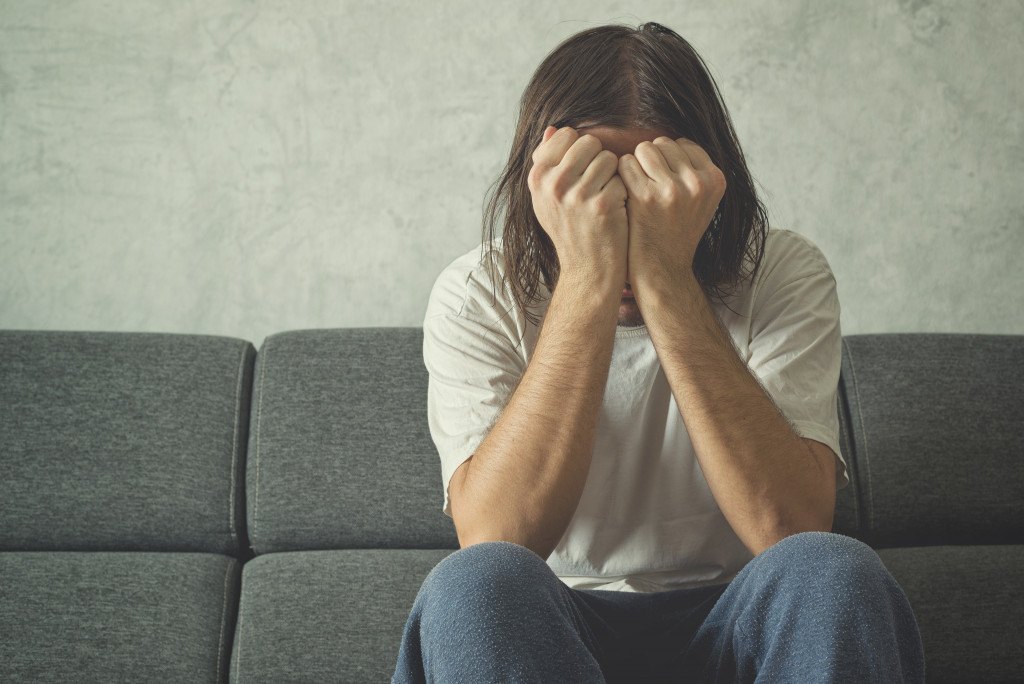- Anxiety is a normal reaction to stress but can become problematic when it lasts long periods
- Causes include genetics, environmental pressures, traumatic events, and hormones.
- Symptoms may include difficulty sleeping, chronic worrying, restlessness or irritability, difficulty concentrating on tasks, and more.
- Anxiety can seriously impact one’s quality of life, including an increase in alcohol addiction and social withdrawal.
- Tips for managing anxiety include regular exercise, relaxation techniques, talking with a therapist, etc.
Anxiety can be an intimidating topic to talk about. It’s often seen as a sign of weakness or insecurity. But it’s important to remember that anxiety is a normal reaction to stress and pressure. Everyone experiences some form of anxiousness in their lives at one time or another. In this article, we’ll discuss the causes, symptoms, and tips for managing anxiety to help you better understand and manage your feelings of anxiousness.
What Causes Anxiety?
Genetics, environmental pressures, traumatic events, and hormones cause anxiety. Genetics plays a significant role in how people respond to stressors; if someone has a family history of anxiety disorders, they are more likely to experience anxiety themselves. Environmental pressures like work deadlines or lack of sleep can also increase stress and anxiety.
Traumatic events such as losing a loved one or experiencing abuse can also trigger anxiety. Additionally, hormones play an essential role in regulating emotions; if our hormones become imbalanced due to illness or other factors, we may experience heightened anxiety levels.
Symptoms of Anxiety
Anxiety manifests differently for everyone, but some common signs indicate someone is dealing with stress, such as difficulty sleeping, chronic worrying, restlessness or irritability, difficulty concentrating on tasks, increased heart rate, or shortness of breath during stressful situations. It’s important to note that these symptoms vary person-to-person, so it’s best to speak with a doctor if you believe you may have an anxiety disorder so they can properly diagnose it.
Impact on Quality of Life
Sadly, when anxiety becomes too much to handle, it can seriously impact our quality of life. People who suffer from anxiety often experience depression, low energy levels, and decreased concentration. They may also struggle with the following:
Alcohol addiction

Due to the numbing effects of alcohol, some people may turn to it as a way to cope with their anxiety. But this isn’t a healthy solution and can lead to an even bigger problem if not addressed quickly.
Alcohol dependence can have a long-lasting impact on your relationships and career. If alcohol has become an issue in your life, it is vital to seek help from an alcohol addiction treatment center that can provide the support and guidance you need to get back on track. These facilities offer a safe and supportive environment for people to get back on their feet.
Poor decision making
People with anxiety may find it challenging to make decisions due to overwhelming stress and worry. People with anxiety may have difficulty concentrating, leading to poor decision-making. As a result, you may lose opportunities or make mistakes that can be costly. When overwhelmed, individuals may struggle to find the energy or motivation to tackle a task.
Social withdrawal
People with anxiety are more prone to withdrawing socially due to fear of judgment or self-doubt. This can lead to loneliness and other depression as it limits an individual’s ability to have meaningful relationships with others. Also, isolating yourself may increase your anxiety as it determines the personal connections that can help to ground and support you.
Decreased self-esteem
Anxiety can drastically affect an individual’s self-esteem as they may feel undeserving or inadequate. This can lead to further pressure as the person begins to expect adverse outcomes due to low self-worth. This decreases their confidence and makes it difficult for them to take risks or enjoy life. It is important to remember that anxiety is manageable, and treatments are available.
Tips For Managing Anxiety

The good news is that there are ways we can all manage our levels of anxiousness! Here are some tips for dealing with stress and managing your feelings of anxiety:
- Exercise regularly- this helps reduce stress hormones in the body while releasing endorphins, making us feel better overall.
- Practice relaxation techniques- yoga and deep breathing exercises.
- Talk therapy- speaking with a professional therapist specializing in mental health issues.
- Medication- if needed (this should be discussed with your doctor).
- Spend time outdoors- this helps ground us and connect us back to nature, which reduces stress levels.
- Get enough sleep- quality sleep helps reset our minds and bodies to feel refreshed when we wake up each morning.
No matter what type of anxiety you’re facing—whether it’s due to genetics or environmental pressures—it’s important to remember that there are ways we can all learn how to manage our feelings of anxiousness better. It might take some trial and error to figure out what works best for you, but with the right help and support, you can work towards feeling better.


